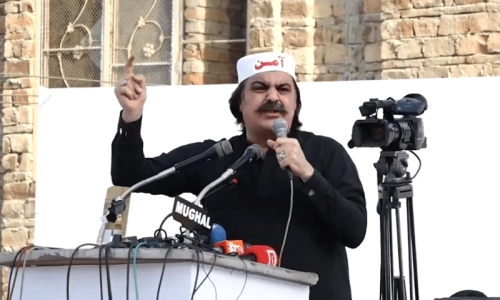ISLAMABAD: Pakistan will move the International Court of Arbitration (ICA) to restrain India from building two major hydropower projects on rivers assigned to Islamabad under the 1960s Indus Waters Treaty.
“Pakistan to move international court of arbitration,” said Federal Minister for Water and Power Khwaja Mohammad Asif in a tweet. An eight-member delegation led by Secretary Water and Power Mohammad Younas Dagha is currently in the neighbouring country for final talks on resolving the dispute bilaterally or to seek arbitration.
Khwaja Asif, who is also holding the portfolio of federal minister for defence, said the talks for two and a half years with India on resolution of Pakistan’s objections regarding Kishanganga and Ratle Hydroelectric projects have failed. “Pakistan with consent of stakeholders decided to take it to full court of arbitration,” he said.
The minister said India had invited the Pakistani side to discuss points of dispute over the Indus Waters Treaty.
He did not receive telephone calls or respond to messages after his afternoon tweets. “Talks have failed,” said a water and power ministry spokesman but declined to go into details.
Another official said the Pakistani delegation would return from India on Saturday. He said the delegation was meant to discuss both options with India i.e. resolve the dispute through bilateral means or else move the ICA.
Under the treaty, in case the parties fail to resolve water disputes through bilateral means, the aggrieved party has the option to invoke the jurisdiction of the ICA or the neutral expert under the auspices of the World Bank.
The jurisdiction of the ICA could be invoked either jointly by the two parties or by either party as envisaged under Article IX (5) (b) or (c) of the treaty for constitution of a seven-member arbitration panel.
Pakistan’s experience with both international forums — neutral expert and ICA — has not been satisfactory for varying reasons and outcomes, partially due to domestic weakness, including belated decision-making. Pakistan first challenged Baglihar Hydroelectric Project before the neutral expert and then Kishanganga Hydroelectric and Wuller Barrage before the ICA. He said India was also in violation of the ICA decision of 2013.
Islamabad has been under criticism at home for losing its rights through legal battles instead of building diplomatic pressure in world capitals to stop India from water aggression.
An official said Pakistan now again felt its water rights were being violated by India on two rivers, the Chenab and Jhelum, through a faulty design of 850MW Ratle Hydropower Project and 330MW Kishanganga Hydropower, respectively.
He said the government had originally decided to take up the matter at international forums provided in the 1960 treaty in December 2015 but the process was delayed for unknown reasons. He said even two US law firms, Three Crowns and Willams & Connelly, had been selected at the time.
Bilateral avenues’ failure
The official said Pakistan had exhausted all bilateral avenues to settle the dispute but in vain. Pakistan’s Foreign Office had also written to India last year highlighting points of difference and seeking its consent for appointment of neutral expert over the designs of the two said projects as both the countries had failed to resolve the issues at the level of Permanent Commission of Indus Waters (PCIW).
Both Pakistan and India have already declared their failure to resolve the issues pertaining to the designs of Kishangana and Ratle hydropower projects at the PCIW.
Pakistan believed Kishanganga’s pondage should be a maximum of one million cubic metres instead of 7.5 million, intake should be up to four metres and spillways be raised to nine metres.
On Ratle, Pakistan has four objections. Freeboard should be one metre instead of two meter, pondage should be a maximum of eight million cubic metres instead of 24 million, intake level should be at 8.8 metres and spillways at the height of 20 metres. It believes the Indian design of Ratle project would reduce Chenab flows by 40 per cent at Head Marala and cause irrigation loss to crops. The Ratle dam is believed to be three times larger than the Baglihar dam.
Under the provisions of the Indus Water Treaty, 1960, the waters of the eastern rivers — teh Sutlej, Beas and Ravi — had been allocated to India and the western rivers — the Indus, Jhelum and Chenab — to Pakistan except for certain non consumptive uses.
Published in Dawn, July 16th, 2016












































